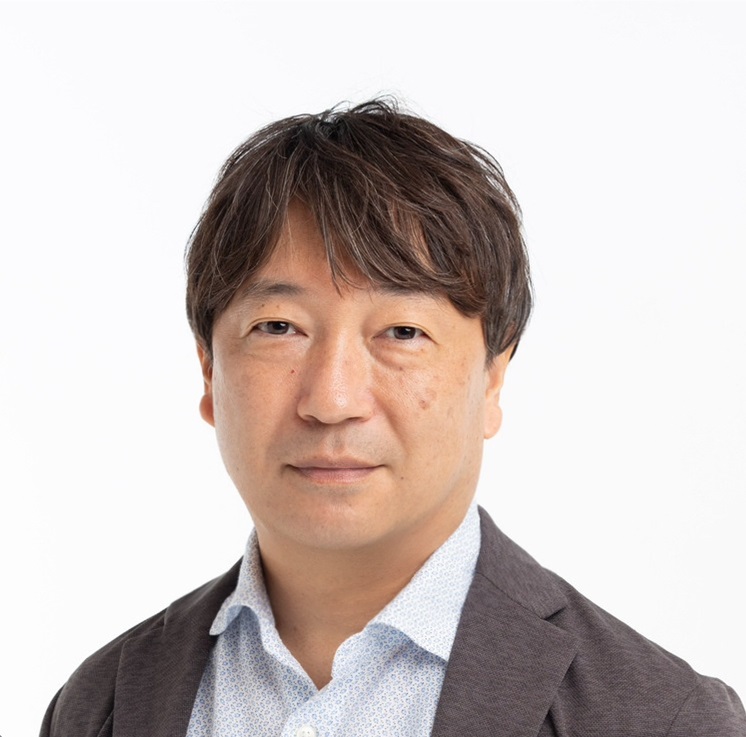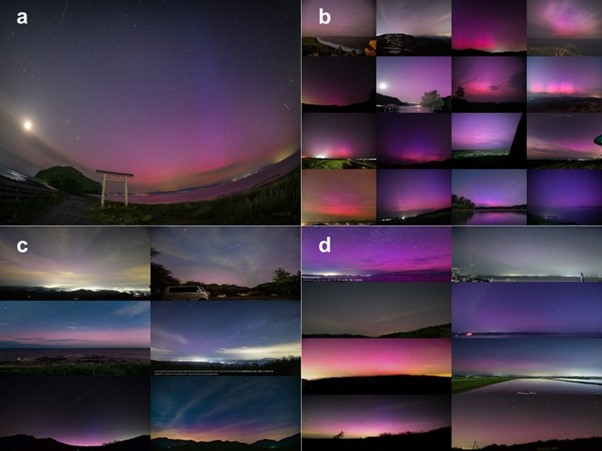令和7年9月修了予定者の博士学位論文の提出期間の詳細については、こちらをご覧ください。
Thesis submission period for students who Intend to Complete the Doctoral Program in September 2025 is available on this websites.
地球惑星科学専攻では、修士課程学位記伝達式を下記の通り行います。
式典中の修了生のマスク着用は、個人の判断に委ねることを基本とします。
◆地球惑星科学専攻 修士課程学位記伝達式◆
*日時:令和7年3月24日(月)16:00~
*場所:理学部1号館279号室 SKY Lecture Room
※学生証を必ず持参してください。博士課程に進学する方は、新年度開始後新しい学生証と交換します。
※欠席する場合は、学位記を専攻事務室(1号館811号室)で、後日必ずお受け取りください。
※令和6年度 東京大学学位記授与式 2024 Diploma Presentation Ceremony
Ceremony for the Commencement of the Department of Earth and Planetary Science— March 2025
In the Department of Earth and Planetary Science, the master’s degree ceremony will be held as follows.
Graduates will be required to wear masks during the ceremony at their own discretion.
*Date and time: March 24, 2025 (Monday) 16:00~
*Location: Faculty of Science Building 1, Room 279 SKY Lecture Room
※Please be sure to bring your student ID. If you are going on to a doctoral course, you will receive a new student ID card after the start of the new academic year.
※If you are absent, please be sure to pick up your diploma at a later date from the department office (Room 811, Building 1).
※令和6年度 東京大学学位記授与式 2024 Diploma Presentation Ceremony
◆問い合わせ先◆ 地球惑星科学専攻事務室 教務担当
電話番号:03-5841-4501、4502(直通)
内線(24501、24502)
e-mail: gakumu-eps.s@gs.mail.u-tokyo.ac.jp
- Job title and number of positions available
Professor, one position - Field of expertise
Space and planetary plasma physics - Requirements
Ph.D. or an equivalent qualification.
The ability to conduct research and education at the undergraduate and graduate levels in theoretical research using plasma kinetic theory in the field of space and planetary plasma physics. In addition, leadership in research using in-situ satellite observation of plasma to verify theories is preferential.
Sufficient Japanese ability for instruction at the undergraduate and graduate levels (where this is not possible at the time of appointment, this level of language proficiency is expected desired within five years) - Types of applications
Application by the applicant
Recommendations are accepted only if the nominator and the nominee are affiliated with institutions in Japan. Consent of the nominee is required. - Date of commencement of employment
As early as possible after decision is made - Term of employment
Non fixed-term - Probation period
6 months from the date of employment - Place of work
Graduate School of Science, The University of Tokyo (7-3-1 Hongo, Bunkyo-ku, Tokyo)
(Scope of Change) The faculty member will be assigned to the place designated by the University (In principle, the faculty member will not be reassigned or transferred against his/her will. (For details, please refer to Article 4 of the Regulations Concerning the Employment of University of Tokyo Faculty Members.) - Affiliation
Space and Planetary Science Group, Department of Earth and Planetary Science, Graduate School of Science, The University of Tokyo - Content of work duties
In addition to their own research, the successful candidate will teach at both undergraduate and graduate levels and also contribute to administration in the University.
(Scope of Change) May order reassignment, dual assignment, or secondment. (In principle, the faculty member will not be reassigned or transferred against his/her will. (For details, please refer to Article 4 of the Regulations Concerning the Employment of University of Tokyo Faculty Members.) - Working hours
Based on the discretionary work system for professional work, working hours are deemed to be 7 hours and 45 minutes per day. - Days off
Saturdays, Sundays, national holidays and end-of-year holidays (December 29 to January 3) - Paid Leave
Annual paid leave, Relaxation leave, Bereavement leave, etc. - Wages, etc.
Basic Salary will be decided after taking into account the successful candidate’s academic and professional background, etc. There is a system for regular wage raises. - Allowances
End of semester bonus and diligence bonus (twice a year), Commuting allowance (up to 55,000 per month if the payment conditions are satisfied), and other allowances decided by the University of Tokyo - Insurance
The successful candidate will be automatically enrolled in the insurance scheme provided by the Mutual Aid Association of MEXT (Ministry of Education, Culture, Sports, Science and Technology) and employment insurance by being provided for in the law. - Application Materials Required:
a) Curriculum vitae (this should include age, email address and other contact details, and a summary of academic and professional career from high school including the date of university graduation).
b) A summary of the main research and teaching activities of the applicant (about 1000 words).
c) List of publications and related scientific output, which should be divided into the following 4 types
-Refereed papers and review articles
-Non-refereed papers and review articles
-Books
-Other relevant material
d) PDF files of up to 5 significant publications
e) Outline of aspirations and plans for research after taking office (about 1000 words)
f) Outline of aspirations and plans for graduate/undergraduate education after taking office (about 1000 words)
g) In the case of self-recommendation, Names and contact information for 2 referees who can provide an independent assessment of the candidate.
h) In the case of a recommendation by someone else, a letter of recommendation and documents that explain the contents of a) to f) above. - Application Deadline
All documents must arrive on or before Wednesday, 7 May, 2025 (JST). - Document submission
All documents should be submitted as email attachments in pdf format. The documents can be separated into several separate emails but the total size of each individual mail should not exceed 10 MB. Applications should be sent to plasma-jinji@eps.s.u-tokyo.ac.jp and the subject should be Professor in Space and Planetary Science. An acknowledgement will be sent within 2 working days of receipt of the application documents. - Name of Recruiter
The University of Tokyo - State of Working Measures to Avoid Passive Smoking
Smoking is prohibited inside the grounds of our university. There are a limited number of smoking areas outdoors in the university grounds. - Enquiries
Prof. Shinsuke Imada
Department of Earth and Planetary Science Graduate School of Science
The University of Tokyo
Email: imada@eps.s.u-tokyo.ac.jp
Tel: +81 (0)3-5841-4591. - Others
・Interviews may be conducted after screening of documents.
・Personal information received through this application process will not be used for any other purposes.
・The University of Tokyo is committed to gender equality in hiring. More details of School of Science Master Plan for Gender Equality are available on the website https://www.s.u-tokyo.ac.jp/en/overview/gender/
・During the period of employment, sharing controlled technology to you may be prohibited by FEFTA and it may become difficult to execute your job as a faculty or a staff member of the University if you are under the control of a foreign government, corporation or university by contract, or under the control of a foreign government by economic interests. In such a case, you need to keep the contract or interests within the range that does not incur such restrictions.
・Declaration regarding past criminal penalties, administrative actions, and disciplinary actions due to sexual harassment and/or sexual violence etc. against students will be required in the selection process.

Writer Arata Iyohara, a graduate of the Graduate School’s Department of Earth and Planetary Science, has been honored with the 172nd Naoki Sanjugo Award. This prestigious award is presented biannually to recognize “the best work of popular literature in any format by a new, rising, or relatively young established author.”
Iyohara-san, who earned his doctorate from the Department of Earth and Planetary Science, made his literary debut while serving as an Assistant Professor at the Faculty of Science, University of Toyama. His award-winning work, Ai-wo-Tsugu-Umi, comprises five short stories featuring themes as diverse as sea turtles, Hagiyaki clay, Japanese wolves, the Nagasaki atomic bomb, and a meteorite fall. These narratives explore human thoughts and connections, interweaving gentle storytelling with a natural integration of scientific elements.
In his works, science often forms the backdrop or complements the human stories, harmonizing the vast phenomena of nature across various time and space scales with human activity. Characters involved in science are portrayed with depth and warmth, making them relatable to those in our Graduate School. Such depictions highlight that science is not only a pursuit of understanding nature but also a way to place humanity within it, enriching both the mind and spirit.
As a researcher, Iyohara-san traveled around the world in search of ancient rocks, analyzing the magnetic fields recorded within them to reconstruct the history of Earth’s magnetic field. When we welcomed him as a speaker at our Homecoming Day talk event in October 2024, he shared photos from his earlier days. Many of them depicted the young Iyohara-san venturing out for field research and confronting nature. I imagine that, during those moments of engaging with nature, he cultivated an artist’s perspective to portray humanity with warmth, while maintaining a scientist’s calm and objective gaze toward his subjects.
Iyohara-san has expressed his intention to continue creating works connected to science. I wish him continued success in his endeavors and, as one of his fans, I eagerly look forward to the day when I can encounter his next creation. Congratulations!
The 172nd Naoki Sanjugo Prize of the Society for the Promotion of Japanese Literature(JP Only):https://bungakushinko.or.jp/award/naoki/index.html
(Responsibility: Shogo Tachibana, Professor, UTokyo Organization for Planetary and Space Science (UTOPS) / Department of Earth and Planetary Science)
2024年度冬季地球惑星科学専攻修士論文発表会プログラムはこちらです。
Program for AY 2024 Winter Master’s Thesis Defense
全学の卒業式および学位記授与式についてお知らせいたします。
※各学科、専攻の学位記伝達式については、決まり次第通知いたします。
〇全学 卒業式について
卒業式(対象:学部卒業者) | 東京大学 (u-tokyo.ac.jp)
〇全学 学位記授与式について
学位記授与式(対象:大学院修了者) | 東京大学 (u-tokyo.ac.jp)
アカデミックガウンについてはこちらをご確認ください。
We would like to inform you of the university-wide graduation ceremony and degree conferral ceremony.
※We will notify you of the degree conferral ceremony for each department and major as soon as it is decided.
〇Commencement Ceremony
https://www.u-tokyo.ac.jp/en/current-students/spring-commencement.html
〇Diploma Presentation Ceremony
https://www.u-tokyo.ac.jp/en/current-students/diploma-presentation.html
Please check here for information about academic gowns.
本学では、学位に応じて式服(アカデミックガウン)が定められており、特に卒業式・学位授与式では、各位の希望に基づき任意で着⽤されています。
〇式典の概要・着⽤⽅法について(⼤学ウェブサイト)
https://www.u-tokyo.ac.jp/ja/students/events/h15_08.html
令和7年3⽉に卒業・修了予定の学⽣で、式服のレンタルまたは購⼊を希望する場合は、次の申込⽤ウェブサイトを参照し、手続きをしてください。
〇レンタル・購⼊申込について(東⼤⽣協ウェブサイト※)
https://www.gown.utcoop.or.jp
https://www.gown.utcoop.or.jp/index_en.html
なお、レンタル受付期間は【令和7年1⽉7⽇(火)〜2⽉20⽇(木)】とされていますが、式服の在庫数量には限りがあり、希望者多数の場合は先着順(受付は早期終了)となりますので、式典当⽇に着⽤を希望する場合は、できる限り早めに⼿続をしてください。
[レンタル・購⼊⼿続きに関する問い合わせ先※]
東⼤⽣協本郷第⼆購買部 https://www.utcoop.or.jp/shop/hongo/
※式服のレンタル・購⼊⼿続は、本学からの委託により、東京⼤学消費⽣活協同組合(東⼤⽣協)において取り扱われています。
2025年3月 修士課程修了予定者 各位 English guide is here.
下記要領で修士論文提出受付および発表会を行います。
提出方法等の詳細はこちらをご覧ください。
◆スケジュール◆
| 12月 2日(月) | 9:00 | タイトル登録開始(情報集約システム) |
| 1月 6日(月) | 12:00 | タイトル登録締切(情報集約システム) |
| 1月14日(火) | 12:00 | 審査用論文提出締切(情報集約システム) |
| 研究計画書提出締切〈外部受験者・内部進学者〉(pdfファイル)※1 | ||
| 1月15日(水) | 12:00 | 発表要旨提出締切(pdfファイル)※2 |
| 1月22日(水) -1月24日(金) | 修士論文発表会(プログラムは1月15日頃にWEB上で通知) | |
| 2月28日(金) | 15:00 | 最終版修士論文提出締切 ①pdfファイルを情報集約システムより提出 ②製本済論文を専攻事務室に提出 |
◆その他◆
・修士論文発表会は、発表時間20分、質疑応答10分で行います。
・論文タイトルは例年間違いが散見されますので特に注意してください。
・1月15日(水)12:00までに研究業績を情報集約システムで更新しておいてください。
※1研究計画書提出先(外部受験者・内部進学者)
https://univtokyo-my.sharepoint.com/:f:/g/personal/5516241990_utac_u-tokyo_ac_jp/ErNNRMyOJEtLrtl0Gs7vwV4BGQuou2SwPxgduh1NuVpP9Q
1月14日(火)12:00締切
※2発表要旨提出先
https://univtokyo-my.sharepoint.com/:f:/g/personal/5516241990_utac_u-tokyo_ac_jp/EscelXgxTcRPtJ5-BLovHnMB0_cOINKKd1s_pHZndYgqmA
1月15日(水)12:00締切
Please check annual schedule for details.
※The dates for the degree conferment ceremony (graduate school) and graduation ceremony (undergraduate) have been revised.
Positive
Monday, March 24, 2025 Graduation Ceremony (Graduate School)
Tuesday, March 25, 2025 Graduation Ceremony (Undergraduate)
↑
Mistake
March 19, 2025 (Wednesday) Graduation Ceremony (Graduate School)
Friday, March 21, 2025 Graduation Ceremony (Undergraduate)
Summary
A research group led by Associate Professor Ryuho Kataoka of the National Institute of Polar Research analyzed 179 aurora photographs taken by citizens from a wide area of Japan on May 11, 2024. As a result, they found that the aurora could be observed even in low-latitude areas such as Hyogo Prefecture because the aurora was bright at an altitude of 1,000 km, which is higher than usual. The color of the aurora seen from Japan was magenta, not red as is common in low-latitude auroras, because the blue scattered light of sunlight was visible simultaneously.

Project Researcher Yuki Nakamura, a member of the Seki Laboratory, Department of Earth and Planetary Science participated in this research result.
Please see the following link for details.
- Press Release, School of Science : https://www.s.u-tokyo.ac.jp/en/press/10557/
本件について、提出審査会プログラムが変更となりましたので、下記よりご確認ください。(2024.10.31)
The Program has been changed, so please check below.(2024.Oct.31)
2024年度秋季地球惑星科学専攻博士論文提出審査会プログラムの詳細はこちらをご覧ください。
Click here for the program for the Dissertation Submission Evaluation Presentation, Autumn 2024.
令和6年3月修了予定者の博士学位論文の提出期間の詳細については、こちらをご覧ください。
For details on the submission period of doctoral dissertations for students who intend to complete in March 2024, please click here.
